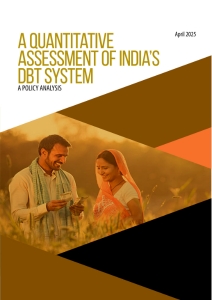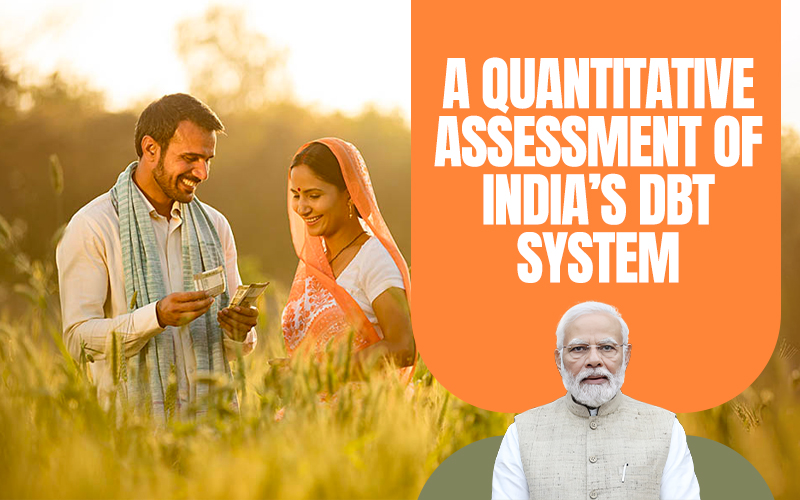
Author
Dr. Shakil Bhat is a renowned researcher and expert in animal genetics, molecular biology, and breeding and has worked as a senior research fellow at Sher-e-Kashmir University of Agricultural Sciences and Technology (SKUAST), Kashmir. Dr. Bhat holds the position of a Block Development Officer in the Department of Rural Development and Panchayati Raj, Government of Jammu and Kashmir.

India’s defence sector has undergone a strategic transformation since 2014, marked by a strong push for indigenous production and self-reliance under the Aatmanirbhar Bharat initiative. This paper provides a data-driven analysis of trends in defense expenditure, industry performance, and modernization initiatives and outlines recommendations to further bolster India’s national security and regional influence.

India’s Direct Benefit Transfer (DBT) system, implemented in 2013, has redefined welfare delivery by enhancing transparency, curbing leakages, and ensuring precise fund distribution. This policy document evaluates a decade of data (2009–2024) to assess DBT’s impact on budgetary efficiency, subsidy rationalization, and social outcomes.

The heinous massacre of 26 innocent tourists in Pahalgam has shocked India’s conscience and marked a turning point in India’s policy towards Pakistan. New Delhi’s response will be hardline, yet firmly rooted in law and legitimacy. For years, India showed restraint by adhering to the 1960 Indus Waters Treaty (IWT) even as Pakistan continued sponsoring cross-border terror. Following the Pahalgam outrage, India has suspended the Indus Waters Treaty. This decisive

In the remote village of Katho-Hallan in Kashmir’s Shopian district, a long-homeless family led by Kaka Kataria has just turned the key to a new home equipped with electricity, a toilet, and clean water. Scenes like this are now unfolding across the country under the Pradhan Mantri Awas Yojana–Gramin (PMAY-G), the flagship rural housing scheme launched in 2016 to fulfill the ambitious promise of “Housing for All.” The government targeted

A Quantitative Assessment of India’s DBT System (A Policy Analysis) Executive Summary India’s Direct Benefit Transfer (DBT) system, implemented in 2013, has redefined welfare delivery by enhancing transparency, curbing leakages, and ensuring precise fund distribution. This policy document evaluates a decade of data (2009–2024) to assess DBT’s impact on budgetary efficiency, subsidy rationalization, and social outcomes. The analysis reveals transformative results, including cumulative savings of ₹3.48 lakh crore through leakage